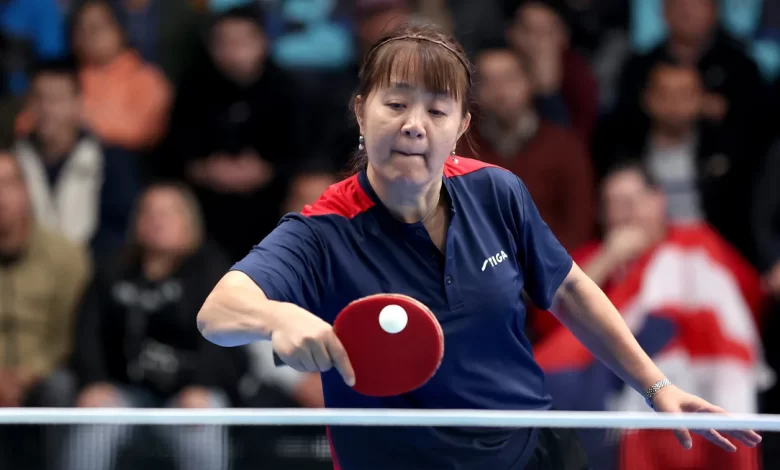

Zhiying Zeng’s eyes begin to sparkle and her gestures become more animated as she recounts the day her lifelong Olympic dream came true.
She had to wait longer than most athletes, too: At 58 years old, Zeng will be one of the oldest Olympians at Paris 2024.
But for Zeng, whose Olympic journey began in China in the 1970s and culminated in qualification for Chile’s table tennis team earlier this year, it was worth the wait.
She had even retired from professional table tennis aged 20 – something which allowed her the opportunity to uproot her life in Asia and move across the Pacific Ocean to Chile – and at one stage went almost 20 years without playing.
“It was the biggest dream of my life,” she tells CNN Sport with a thick, unmistakable Chilean lilt. “Even when I was a little girl and they would ask me what my dream was, I would say: ‘Become an Olympian.’”
Chile has now been Zeng’s home for 35 years and she is as Chilean as they come.
She is known in her adopted country as ‘Tania’ – because Chileans struggle pronouncing the Z in her name – and her favorite dish is pantruca, a kind of dumpling soup. She also eats beans, a staple of the Chilean diet, every week.
Zeng loves empanadas, too, but doesn’t indulge too much now that she’s an elite athlete again. “Too many calories,” she laughs.
Zeng was born in Guangzhou in 1966 and picked up a paddle almost as soon as she was physically able. Her mother was a table tennis coach, which meant the then-government housed the family next to a sports complex, allowing Zeng to train every day and surround herself with professional players.
She was trained by her mother until the age of nine when, Zeng says, she became a typical grumpy child that didn’t want to be coached by a parent. So her mother enrolled her in a school that employed a table tennis coach and after nearly two years, aged 11, she entered an elite sports academy.
Even in China, by far the world’s most dominant table tennis nation, Zeng’s talents were evident from an early age. She became a national junior champion and won several regional tournaments before turning professional at the age of 12.
When she was 16, she was called up to the Chinese table tennis team for the first time. “So many players in China have that dream because it’s so hard to achieve,” she says.
However, in 1986, two years before table tennis made its Olympic debut at the Games in Seoul, the “two color rule” was introduced, meaning the two sides of the paddle now had to be different colors instead of both black.
Zeng explains that the two faces of the paddle produce different types of effects on the ball and she would regularly rotate it in her hand to confuse opponents. The different colored faces meant opponents could better predict her shots.
“The change of rules affected my game a lot,” she recalls. “That’s when I had a big downturn and left the national team.”
It was a painful moment for Zeng, who says she idolized players who were not much older than her that had already become Asian or world champions, and she was desperate to follow in their footsteps.
But the rule change paved the way for the next chapter in Zeng’s remarkable story and in 1989, she received an invitation to coach schoolchildren in Arica, a city in northernmost Chile.
It was a job she adored, but it wasn’t until 2003 that she picked up the paddle to play competitive table tennis again. She wanted to introduce her son, who was 13 at the time, to the sport in order to drag him away from playing too many video games and watching too much television.
In 2004 and 2005, Zeng comfortably won two national tournaments but once again stopped playing when her son was old enough to go to training on his own and travel with the team’s coach.




